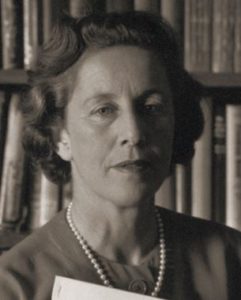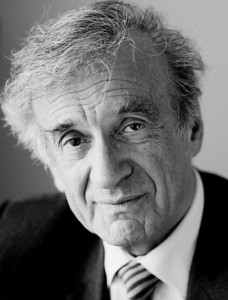The Woman That Ended Apartheid

Helen Suzman
Helen Gavronsky (1917-2009) was born near Johannesburg, South Africa to Jewish immigrants from Lithuania. She studied at Witwatersrand University, first commerce and then economics and economic history after marring Dr. Moses Suzman. During World War II, she worked as a statistician for the War Supply board, and assisted the Governor General’s War Fund. When the war ended she returned to university as a lecturer. She soon joined the South African Institute of Race Relations, and went on to study the conditions of black communities. It was then that she realized how much they suffered, and became an anti-apartheid activist. In 1953, Suzman was elected to the South African Parliament. Unhappy with how little her own party was doing for the cause, she co-founded the Progressive Party in 1959 with a platform to end segregation, and bring equal rights for all. By 1961, all other members of her party lost their seats, leaving Suzman as the only anti-apartheid MP for the next thirteen years. Throughout this time, she ate alone in the parliamentary lunchroom. Nelson Mandela would later say that she was “undoubtedly the only real anti-apartheid voice in parliament.” Suzman experienced tremendous anti-Semitism from her colleagues, as well as harassment from police, and threats on her life. She remained unyielding. In 1974, she finally got some support as six other anti-apartheid MPs joined the government. A year later, her party merged with the Reform Party, run by another Jewish anti-apartheid activist, Harry Schwarz. Together, the Progressive Reform Party became the official opposition by 1977. Suzman worked tirelessly to bring equal rights for all, including women and minorities. She regularly visited Nelson Mandela and other prisoners, and worked hard to improve their conditions. All in all, she served as an MP for 36 years, and continued to work in Mandela’s government afterwards. She served on the Human Rights Commission, and was twice nominated for a Nobel Peace Prize. She was awarded 27 honourary degrees, was knighted by the Queen in 1989, and given the golden Order of Merit by Mandela in 1997. Suzman was voted among the greatest South Africans in history. Later in life, she did admit that South Africa did not go in the direction she thought it would, and strongly criticized the African National Congress, who did little to improve the country. The party that Suzman founded, now known as the Democratic Party, is currently the official opposition in South Africa.
What Separates Judaism from Other Religions?
Words of the Week
He who restrains his anger will not see his enemies rule over him.
– Rebbe Nachman of Breslov

 Simone Annie Liline Jacob (1927-2017) was born and raised in Nice, France. Just after finishing high school, her entire family was rounded up and sent to Auschwitz. Jacob’s mother, father, and brother perished in the Holocaust; two sisters survived. After being liberated from the camps, Jacob settled in Paris and studied law and politics. There, she met her soon-to-be husband Antoine Veil, with whom she would be married for 66 years. In 1956, she became a magistrate, and worked for the French Ministry of Justice, heading its penitentiary system. She was hailed for her role in dramatically improving prison conditions, and was known to regularly visit prisons on her days off. By 1964, Veil had become France’s Director of Civil Affairs. She worked tirelessly for women’s rights, and succeeded in finally getting French women full equality in legal matters. In 1970, Veil took over as secretary general of the Supreme Magistracy, then became Minister of Health in 1974, making her the first female minister in French history. Among her most famous laws was opening access to contraceptives, legalizing abortion (still known as “Veil’s Law”, which she intended only as a “last resort, for desperate situations”), and banning smoking in public areas. She also introduced maternity benefits, improved hospital conditions, enhanced the medical school curriculum, and worked to stop the illegal harvesting of organs from the deceased. Meanwhile, Veil worked for the European Economic Community, believing that a unified Europe was the only way to prevent another devastating war. When the EEC was reformed as the European Union, she was elected to its parliament, and shortly after, as its first president. She would serve on the European Parliament until 1993, in its Environment, Health, and Political Affairs Committees. Veil then returned to the French government, serving as Minister of State and Minister of Health until 1995. She continued her work in France and Europe until her last days, and faced a great deal of anti-Semitism throughout, including death threats and swastikas painted on her car and home. Not surprisingly, in recent years her greatest passion was Holocaust education, and she was president of the Foundation for the Memory of the Shoah. Among her many awards are the prestigious Charlemagne Prize, the Truman Award for Peace, the Legion of Honour, and the Order of the British Empire. In 2008, Veil became one of the forty “immortal” members of the illustrious French Academy. She also held 18 honourary degrees, including one from Yale and another from Yeshiva University. Sadly, Simone Veil passed away earlier this year, just shy of her 90th birthday. She was laid to rest with full military honours in the Pantheon, Paris’ famous mausoleum, alongside just 71 of France’s most cherished figures, including Voltaire and Rousseau. She remains among the most revered women in French history.
Simone Annie Liline Jacob (1927-2017) was born and raised in Nice, France. Just after finishing high school, her entire family was rounded up and sent to Auschwitz. Jacob’s mother, father, and brother perished in the Holocaust; two sisters survived. After being liberated from the camps, Jacob settled in Paris and studied law and politics. There, she met her soon-to-be husband Antoine Veil, with whom she would be married for 66 years. In 1956, she became a magistrate, and worked for the French Ministry of Justice, heading its penitentiary system. She was hailed for her role in dramatically improving prison conditions, and was known to regularly visit prisons on her days off. By 1964, Veil had become France’s Director of Civil Affairs. She worked tirelessly for women’s rights, and succeeded in finally getting French women full equality in legal matters. In 1970, Veil took over as secretary general of the Supreme Magistracy, then became Minister of Health in 1974, making her the first female minister in French history. Among her most famous laws was opening access to contraceptives, legalizing abortion (still known as “Veil’s Law”, which she intended only as a “last resort, for desperate situations”), and banning smoking in public areas. She also introduced maternity benefits, improved hospital conditions, enhanced the medical school curriculum, and worked to stop the illegal harvesting of organs from the deceased. Meanwhile, Veil worked for the European Economic Community, believing that a unified Europe was the only way to prevent another devastating war. When the EEC was reformed as the European Union, she was elected to its parliament, and shortly after, as its first president. She would serve on the European Parliament until 1993, in its Environment, Health, and Political Affairs Committees. Veil then returned to the French government, serving as Minister of State and Minister of Health until 1995. She continued her work in France and Europe until her last days, and faced a great deal of anti-Semitism throughout, including death threats and swastikas painted on her car and home. Not surprisingly, in recent years her greatest passion was Holocaust education, and she was president of the Foundation for the Memory of the Shoah. Among her many awards are the prestigious Charlemagne Prize, the Truman Award for Peace, the Legion of Honour, and the Order of the British Empire. In 2008, Veil became one of the forty “immortal” members of the illustrious French Academy. She also held 18 honourary degrees, including one from Yale and another from Yeshiva University. Sadly, Simone Veil passed away earlier this year, just shy of her 90th birthday. She was laid to rest with full military honours in the Pantheon, Paris’ famous mausoleum, alongside just 71 of France’s most cherished figures, including Voltaire and Rousseau. She remains among the most revered women in French history.